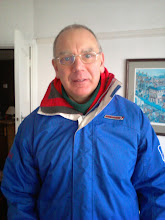Along the banks of the Kent
Panoramic view over Kendal, on route to ...
... Scout Scar
Barrowfield trigpoint - Flush Bracket S5672 - ranked joint 826th in the "Triggy charts"
A walk through Serpentine Woods
... and along the Kent, just south of Natland
... then a refreshing pint in the Brewery
We also visited Keswick, where I took the opportunity to visit the world famous Pencil Museum
The first graphite ever discovered was in the Seathwaite Valley in Borrowdale near Keswick. It was found around 1500 by shepherds after a violent storm. They went out in the morning after the storm to check that their sheep were ok and found that a number of trees had been blown down. The subsoil had been torn away exposing some black material which they initially thought was coal - but it would not burn and the shepherds were at a loss as to what it was. They soon found out that the graphite was an excellent way to mark sheep.
The value of the material was quickly discovered and the Government took over the mines. Graphite - locally called "wad" - was transported to London and used as moulds for the manufacture of cannon balls
The first pencils were made in Keswick around 1558 - and soon a cottage industry grew up making artists' pencils.The basic principles of pencil making have remained the same over the centuries, although production methods have obviously changed considerably. Essentially, a colour or graphite strip is sandwiched between two pieces of wood then cut and finished into the shape required. This is now almost a fully automatic process whereas at one time every single stage was carried out by hand
In 1980 the then Managing Director realised that
people were fascinated by the history of pencils and how they were made and the
idea for the Museum was born. It was constructed in the former factory canteen
building and advertisements were placed in newspapers seeking artefacts and
memorabilia. The famous Pencil Museum van, a 1954 Morris J Type, was found
hidden under rubbish in the warehouse, brought out and restored, it now has
pride of place at the front of the Museum. In May 1981 the museum opened its
doors.
More details of this fascinating museum, including this wonderful model of Tower Bridge made from pencils, can be found at Pencil Museum.
A Happy New Year to all




















No comments:
Post a Comment